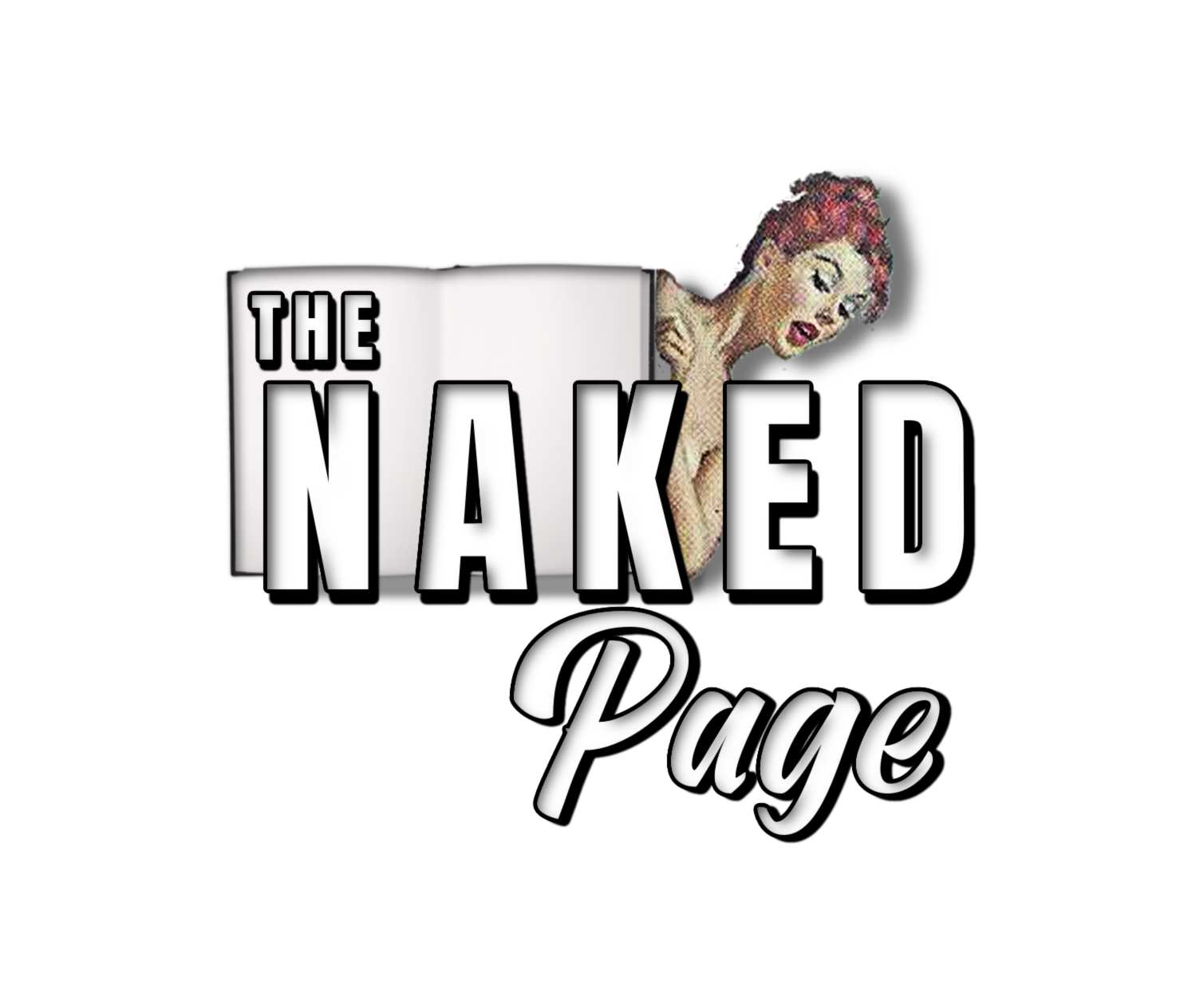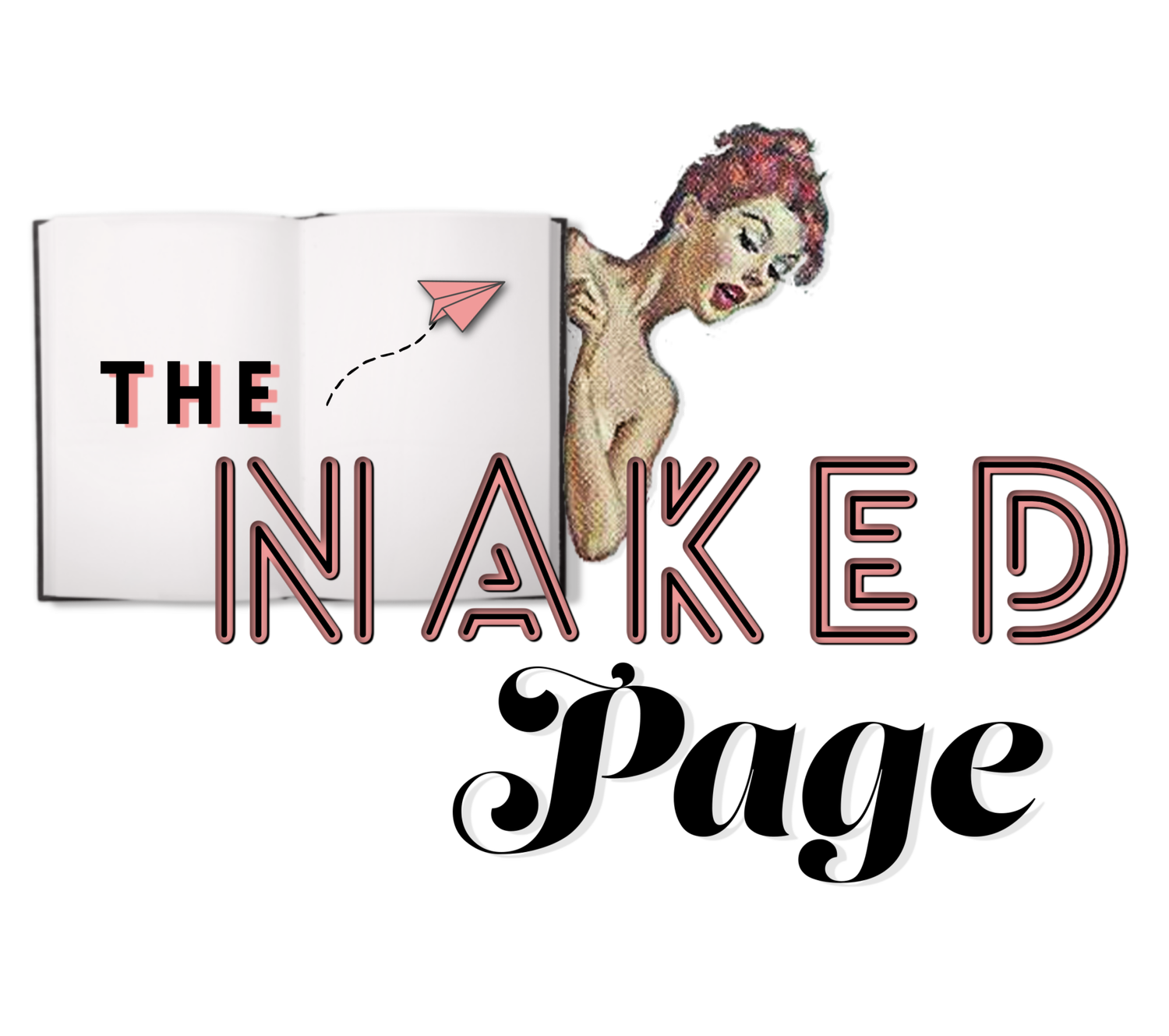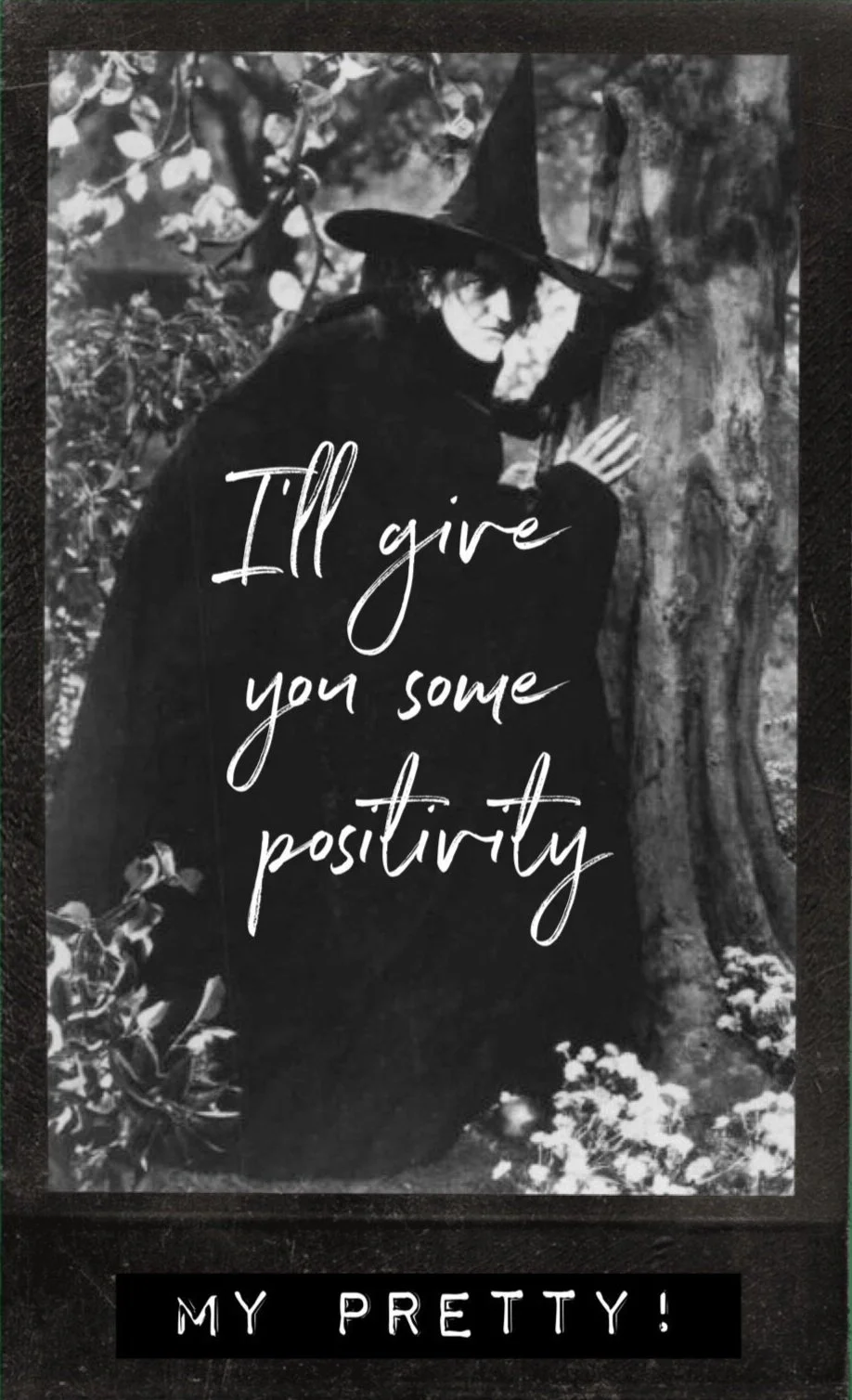Female Empowerment and Other Positive Things that Don’t Work
When I was a theatre student, people would ask me, “isn’t acting just good lying?”
Um, no.
Acting is the furthest thing from telling a lie.
Great actors reveal the hard stuff—the stuff you don’t show in polite society. Acting is telling the truth in such a profound way that most people won’t recognize you.
We may be putting on costumes, but if we’re well-trained thespians, we aren’t covering anything up.
We’re exposing our deepest truths.
A writer must do the same thing.
You reveal your most vulnerable self when you pour your story out onto the page.
Now marketing your writing, that’s an entirely different story.
Ethics aside, marketing aims to amplify emotions. Marketers are less interested in telling truths than in producing an end result—getting you to buy.
It’s like cooking dinner for a new date. Imagine you make food that’s so rich it spikes your new guy’s blood sugar—but you convince him those feelings are true love.
Welcome to marketing! And to wedded bliss!
These days, there’s a lot of marketing speak that gets mixed in with online writing advice. PR people are so good at manipulating new authors they claim they can get you to write a bestseller in record time.
Don’t believe the hype.
The way you write your memoir will be vastly different from the way a marketer produces copy.
For one thing, you’ll encounter emotional setbacks during your memoir writing process. And you may need breaks. That’s something jolly jingle writers won’t understand. Sure it’s fun to crank out cutesy catchphrases. But not so much fun to re-examine your traumatic childhood on paper.
The kind of writing you’re writing will make a huge difference in how you tackle your process.
Just be careful about questioning those marketing methods. If you do, you’ll often get clap-back from the positivity brigade. Point out that shallow self-help writing is not the same thing as being in the trenches with your memoir and… look out! You’ll be seen as a Debbie Downer.
Why can’t you just “live, laugh, love,” “dream big,” and “dance like nobody’s watching?”
Hey, I took my clothes off on stage when everybody was watching—burlesque, you know—so these awkward mom memes don’t motivate me at all. They’re lacking in nuance.
What I do know is the positive psychology movement of getting everyone empowered doesn’t work for memoir writing. If you’re creating great art you’ll need to learn how to use all of yourself. Not just the positive stuff.
Being positive won’t produce a mesmerizing memoir that’ll be forever remembered.
Nothing like having an unpopular opinion, right?
Hey, remember Wicked? Wasn’t it Galinda the Good Witch who was a big jerk? Meanwhile, poor Elphaba had a lot going for her, but no one could get past her looks.
Well, paint my face green, sister good witch. I’ve got all kinds of truth-telling techniques in my cauldron to help you supercharge your writing.
My techniques aren’t the popular ones.
But they are the ones that work.
Luckily, I’m not the only one downing truth-telling serum.
The Talking Shrimp posted a brilliant quotation about the problem with this empowerment jazz a few weeks ago:
“Empowered is the pink lady BIC pen version of powerful.”
— Laura Belgray
Ain’t that the truth?
The word empowered has always given me an ick vibe. Had I looked up the definition, I’d have known why.
To get em-powered you have to wait around until someone else gives power to you.
Another person or entity must imbue you with their electricity. You aren’t the source of it.
Is that really what you want? To have someone bestow you with their power?
Hell, no!
I’m NOT waiting around for anyone to grant me anything so I can write my truths.
The next person who uses the word empower is gonna get this:
“Jareth, you have no power over me.”
Then I’ll click my heels together and remind them, “I had the power all along.”
*Two heroine journeys for the price of one, folks. I’ll be here all night.*
The reality is, I’m not coming to your conference or reading your memoir so you can empower me.
What do you have that I don’t have? Not my power!
That thing’s mine and mine alone.
If someone else must grant me empowerment doesn’t that means I never held my own power?
Negatory.
We’re all born with our own power. It’s our birthright.
Isn’t it time we reclaimed our own power and potential?
If you think you have a dynamic story, write it.
Don’t explain to me how it will empower others.
Just stand in your power and tell your story.
Maybe I’ll get the motivation to tell mine, too.
Everybody wins.
In a real way.
Not by using that condescending empowerment crap. And nobody should be making you feel bad for being real about your writing struggles. Sometimes your most powerful self appears only after you’re open and vulnerable.
In fact, the whole positivity obsession isn’t doing real writers any favors.
I know you think it’s helping you, but it’s hanging you up.
Guess who gets notes from their editor stating they must provide deeper content about their darkest moments so their readers can connect?
The memoir writer who refuses to get off the positivity train. Toot toot. That’s who.
The truth is—good storytelling hinges on conflict.
Anyone who is obsessed with being positive will fail to establish significant grit in their writing. And this is a recipe for a mediocre memoir.
If you want to write a memoir that won’t hook any readers, stay positive.
Don’t provide any details about your real struggles. Readers just love that surface-level shit.
I mean, who watches a movie that isn’t 100% positive all the time, anyway, right?
If that were really the case, the entire horror movie industry would fold.
The truth is—good storytelling hinges on conflict.
The bigger the challenge, the bigger the reward.
And that’s why readers are willing to invest in your struggles—no matter how horrific or deep or devastating they may be. The unspoken hope is that by investing in your conflict, readers will eventually get a big payoff. A worthwhile ending.
*Note: worthwhile doesn’t necessarily mean a happy ending.
A worthwhile ending means a resolution worthy of the story that was told.
So, stop holding out on your readers. Go ahead and add in the ugly.
And then work through it.
That’s all you have to do.
Easy, huh?
Not on your life.
You’ll sweat and cry through the process. But it’s all necessary.
If you don’t believe me, have a look at this article from Newsweek.
Julie Norem, a psychology professor at Wellesley College says, “catchphrases like 'it's all good' shut down conversation about how people are really feeling.”
So, if excessive positive thinking can kill a conversation, imagine the impact it’ll have on your readers. Gloss over all your challenges and you’re literally turning off the conversation between you the writer and your reading audience.
Please don’t sanitize your memories to make your readers more comfortable. It’ll only make them think you’re hiding something.
Now consider the people who claim they can get you “to write and publish a bestselling book in 90 days.”
When you see these tactics online, you should stop and think, By George! This is a marketing slogan—not a writing opportunity!
Everybody’s using the latest buzzword. I’m over here throwing around phrases from 100 years ago to see if you’re paying attention.
Words like bestseller are positioned to hijack your emotions. To have you envision your biggest fantasy, not teach you how to master the craft of storytelling.
I’m writing this as I design a website for my bestie—an onstage dynamo comedienne. She makes no bones about getting attention and being heard. So much so that sometimes my introverted self wants to smack her. Hi, Kelly— I know you’re reading this right now!
But I love her enthusiasm. I love the way her words embody life and encourage others through hilarious honesty.
The world needs more of what she has to offer.
And she’s got the perfect idea for a book, too.
But I refuse to encourage her by saying, “you must write your bestseller. It’ll be a chart-topper. Your book will get you superfans.”
Every time I see these kinds of words, I cringe. They’re used to provoke an ego-driven response about the results of a published book.
They don’t assess your needs during the writing process.
Sure, this kind of rah-rah motivation will have you envisioning life as a jet-setting author. But is it honest?
Writing a memoir is a sacred act.
Will it sustain you while you’re writing about your sister’s car crash, your father’s cancer, or your miscarriage?
These words imply that the most important part of the writing process is what happens after you finish your book.
That you should quickly churn out lots of words, top the charts, and you’ll get throngs of adoring fans. And everything will be right with the world.
It doesn’t work like that.
Getting published won’t fix all your problems.
You deserve to know that upfront, not be conned into believing you can whip out a life-changing memoir in 90 days.
I see the process of writing a memoir as a sacred act.
Maybe you will get published. Maybe you’ll find fans.
But if you’re only thinking about the end result, you’re focused on marketing. Not writing.
A memoir of substance requires that you learn to embody the experience of putting down the ugliest parts of yourself. And then you learn how to move through them.
So yes, it might not be an enjoyable experience, but it will be a sacred one.
A messy and painful ritual that holds unbelievable transformations. Like birth.
But those transformations must be intrinsic.
You must find your own voice and make meaning on the page because you’re moved to do so.
Not because you’re overly focused on gaining an adoring audience of superfans. What’s with this new buzzword, anyway?
I don’t want you to be my superfan.
And I don’t want to be anyone else’s superfan.
Hello, stalkers.
Having superfans would literally go against my values.
I know it’s a dream for some people to produce a bestselling book and get rabid fans.
But let me be your Jiminy Cricket for a minute.
If you write a stellar memoir, you’ll be transformed whether you publish it or not.
If bestselling follows your name or book title, it’ll just be extra.
You’ll already know who you are because you’ve done the hard work and held onto your integrity. And you let the writing process redefine you, not the other way around.
You don’t need some external motivator to make you feel worthy. Or empower you.
As someone who used to be the emcee of a burlesque troupe, I once stood in the spotlight before a crowd of 500 audience members naked.
The kind of applause I received was addictive.
But be aware: no one claps for you when you finish writing a book.
Striving to get a huge audience of adoring fans only teaches you to crave more attention. To never be satisfied with what you’ve got.
I remember what it was like to have an audience fall in love with me on stage. But at the end of the night, I still had to take my costume off and go home with myself.
The spotlight is short-lived. But the time in-between—crafting a great story—will be ongoing.
Learn to love your writing time.
Both the slow, methodical moments and the catharsis that comes screeching in, unannounced.
Accept that the best part of writing a memoir will be the challenge of building a story brick by brick. Not what comes after you’ve published it.
There can be real satisfaction in unraveling your pain on the page.
That’s how you find your power. That’s how you become your own superfan.
And then maybe you can empower the man in your life to change a lightbulb or something, so you can see your powerful self in your best light.


